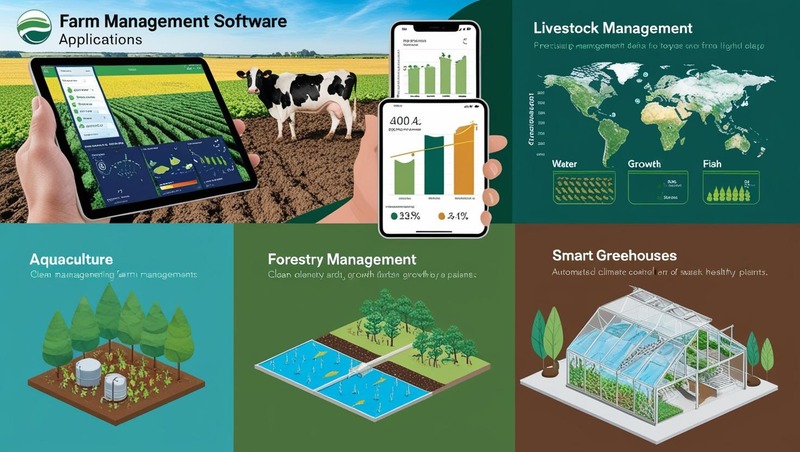The agricultural industry is undergoing a digital transformation, driven by the rising demand for food, resource constraints, and the need for sustainable practices. At the heart of this transformation is farm management software (FMS), a powerful tool that integrates data, automates processes, and enhances decision-making for modern farmers. The future of farm management software is being shaped by technological innovation, data-driven agriculture, and the push toward climate-resilient farming systems.
One of the most significant trends is the integration of artificial intelligence (AI) and machine learning (ML) into farm management platforms. These technologies are enabling predictive analytics, which help farmers forecast crop yields, detect diseases early, and optimize resource usage. AI-powered tools analyze vast amounts of data from sensors, drones, satellite imagery, and weather reports to offer actionable insights, increasing farm productivity while minimizing environmental impact.
Download PDF Brochure @ https://www.marketsandmarkets.com/pdfdownloadNew.asp?id=217016636

Another trend gaining momentum is the adoption of cloud-based and mobile farm management solutions. These platforms allow farmers to access data and manage operations from anywhere in real time. The convenience and scalability offered by cloud solutions are transforming how farms of all sizes plan, monitor, and execute activities. From planting schedules to inventory management and financial tracking, everything can now be managed seamlessly through a centralized digital dashboard.
Sustainability and regulatory compliance are also playing a pivotal role in shaping the future of farm management software. With increasing pressure from governments and consumers to reduce carbon footprints and adopt eco-friendly practices, FMS solutions are evolving to support traceability, emissions tracking, and soil health monitoring. These features not only help farmers meet compliance standards but also improve marketability by demonstrating responsible farming practices.
IoT-enabled precision agriculture is enhancing the value proposition of farm management software. Smart sensors deployed in fields can measure soil moisture, nutrient levels, and crop health in real time. This data feeds into FMS platforms, allowing farmers to make informed decisions about irrigation, fertilization, and pest control. By enabling hyper-local and data-specific actions, precision agriculture reduces waste, lowers costs, and improves yield outcomes.
Interoperability and integration with other agri-tech systems are becoming increasingly critical. Modern FMS platforms are being designed to integrate with equipment like tractors, irrigation systems, and greenhouse controls, creating a unified ecosystem for farm operations. This connectivity streamlines workflows, reduces manual input, and ensures consistency across various processes, leading to enhanced operational efficiency.
Looking ahead, the farm management software market is poised for continued growth, driven by advancements in technology, increasing demand for food security, and the need for sustainable agriculture. As digital tools become more intuitive and accessible, even small and medium-scale farmers will be able to leverage these systems to improve productivity and profitability.
In conclusion, the future of farm management software lies in its ability to harness emerging technologies and deliver integrated, intelligent, and sustainable farming solutions. As agriculture faces mounting challenges from climate change, population growth, and resource scarcity, farm management software will play a crucial role in driving the next agricultural revolution.
